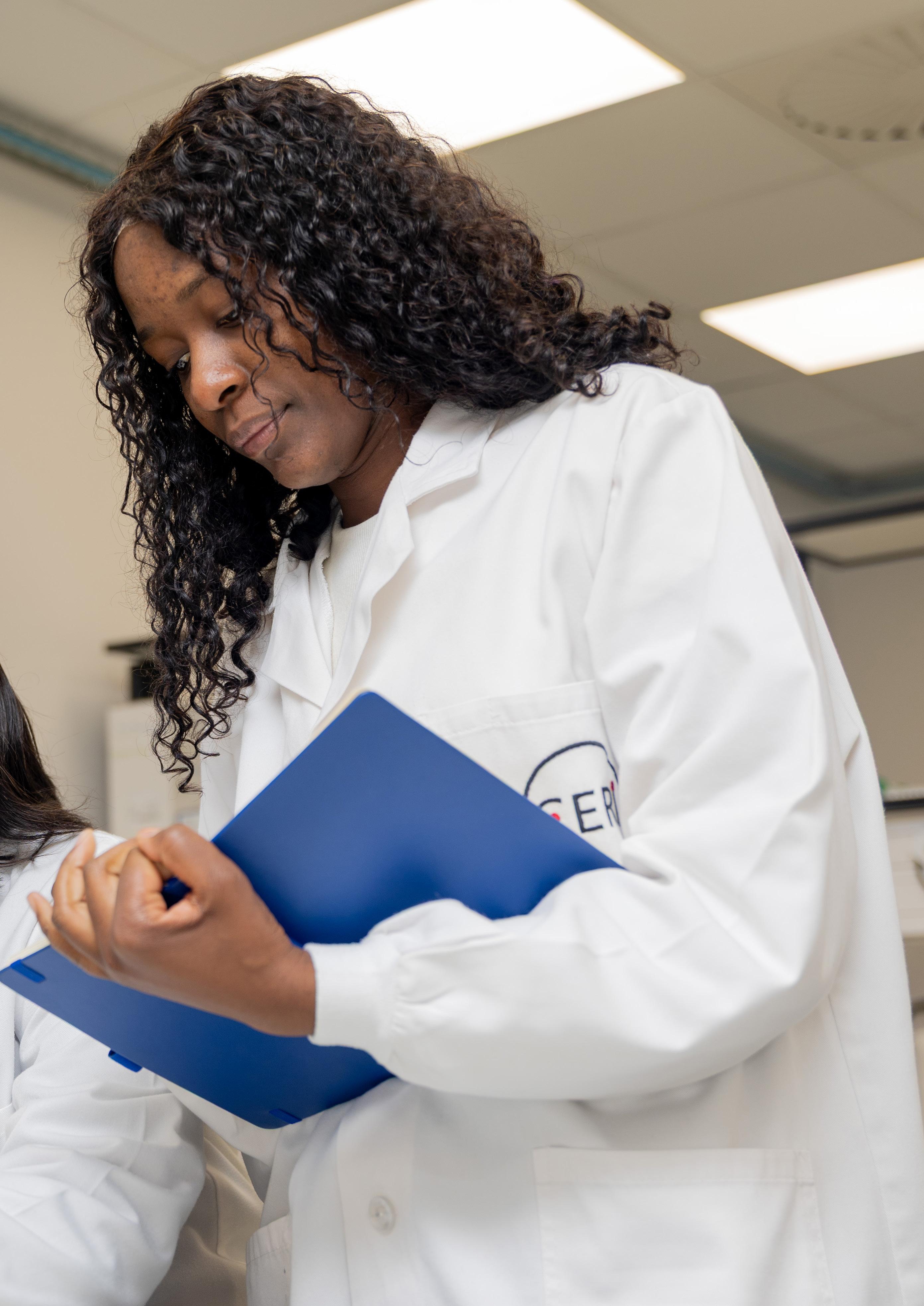
2 minute read
CERI-QIAGEN DIGITAL PCR
Saving lives often begins with saving time. In diagnostics and research, the ability to detect pathogens or genetic markers quickly and accurately can change the course of public health outcomes. That’s why technologies like the QIAcuity digital PCR system are becoming increasingly valuable, especially across the African continent, where the demand for reliable, high-sensitivity molecular tools continues to grow.
On 11-12 June 2025, the Centre for Epidemic Response and Innovation (CERI), in partnership with QIAGEN, hosted a practical training on digital PCR at Stellenbosch University’s Biomedical Research Institute. The focus was on the QIAcuity system, a platform that integrates partitioning, thermocycling, and imaging in a single instrument, reducing hands-on time while improving accuracy and throughput. For researchers and diagnostic professionals, this translates into faster workflows, higher sensitivity, and the ability to detect low-abundance targets with precision.
The training brought together a cross-section of scientists from research institutions, clinical laboratories, and industry. For many, it marked a turning point in their ability to apply advanced molecular techniques in their daily work.
“This training means everything to me,” said Siyanda Mazibuko, Associate Lecturer in Biochemistry at Nelson
Mandela University. “I can now accurately and precisely quantify all my antimicrobial resistance genes in a very quick and simple manner.”
Others saw the potential of digital PCR beyond traditional research environments. Rirapee Tjimune, a Laboratory Technician at ABInBev Namibia, reflected: “This training equips me with the knowledge to implement digital PCR in our quality assurance processes. It will improve the detection of microbial contaminants and enhance product safety in the brewing industry.”
Keikeditse Mohomane, a Staff Scientist at Lancet Laboratories, highlighted how the training would benefit both her current role and future academic goals. “With over a decade in molecular diagnostics, I found this training timely. Digital PCR will strengthen our diagnostic capabilities and support my upcoming PhD in Public Health.”
The initiative also underscored the role of partnerships in building lasting scientific infrastructure. “This is about sustainable skill development,” said Dr Yeshnee Naidoo, Training Lead at CERI. “We’re not just transferring knowledge; we’re building a foundation for longterm capacity in molecular diagnostics across Africa.”
Reeva Daniels, QIAGEN, added: “One of the most exciting outcomes is seeing how participants are already thinking about applying these tools in their unique contexts, whether in public health surveillance, quality control, or postgraduate research.”
Watch the video of the training: https://youtu.be/tVExpR44eUY










